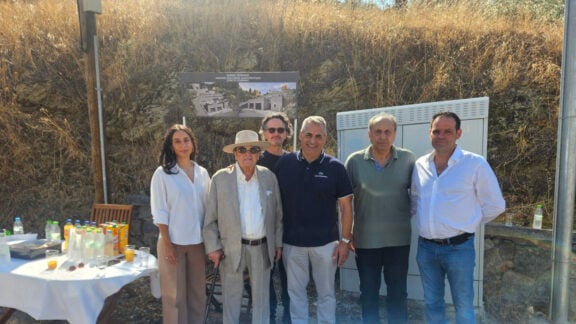‘Independent’, ‘strong’ and ‘problem solver’ are some of the key words that Monash University scientist and teacher extraordinaire, Olga Panagiotopoulou uses to describe herself.
One look at the Assistant Professor’s profiles on the university website will tell you that she exercises these attributes to the maximum.
Her qualities as Senior Lecturer of Anatomy and Developmental Biology are appreciated by her students who nominated for the 2019 Eureka Prize for Outstanding Mentor of Young Researchers. As a lecturer in anatomy (2013 to 2017) at the University of Queensland’s School of Biomedical Sciences, she was awarded the Teaching and Learning Excellence Award.
There are many more awards attached to a prolific academic career. And it is not only as a teacher and a mentor of students that she has shone.
“Receiving awards, discovering new treatments and research findings are certainly flattering and boost my self esteem. But witnessing my students evolving into amazing scientists, independent and critical thinkers and, above all, great human beings is the biggest gift of all.”
Her colleagues equally respect Dr Panagiotopoulou for her work ethic. “My colleagues respect me for my research expertise and for my no-frills, sleeves-rolled-up way that allows the team to forge ahead in our work. They respect my assertiveness and fairness in the way I deal with students and collaborators alike,” she said.
READ MORE: Kindness of UNE lecturer leads student to make $300,000 donation for Ancient Greek
Her laboratory is currently working on a major project on repairing jaw fractures. “The major research focus of my lab is the design and optimisation of fixation techniques for the better and faster healing of jaw fractures. We also run smaller projects on animal and human and foot mechanics. My lab actively collaborates with researchers from the USA, UK Japan and other Australian universities and research institutes,” Dr Panagiotopoulou said.
Yet when she embarked on her academic career in Greece (her country of birth), it was not as a scientist. In 2003, she graduated from the National Kapodistrian University in Athens with a Bachelor of Arts (Honours) in Archaeology and History of Art. And she achieved this while holding down three jobs to pay for her studies.
“I realised the extent of unemployment in this field in Greece and made the decision to change career paths. However, family finances could not support overseas studies and the Greek bureaucratic system would not allow me to proceed with a Master’s Degree in a different discipline. I felt stuck in the system and did not want to spend the rest of my life working for the Greek public sector. But I never gave up.”
Leaving Greece
Her opportunity came the following year, in 2004, when she earned a scholarship from the Bakalas Foundation in Greece and funds from the Natural Environmental Research Council enabled her to study for a Master of Science in Human Osteology and Paeleopathology at the University of Bradford in Britain.
“The educational system in the UK was, in my opinion, superior to the Greek system,” she said.
“The professors, respected us, they were approachable and supportive. They engaged us in very interesting conversations and helped us to develop our critical thinking ability. They taught us that education is not a final product, you need to continuously strive to learn and improve and be open and willing to adjust your opinions and ideas.”
It was a realisation that she has carried with her in her dealings with the students under her wing. “When I finished my Master’s, I realised how broken the Greek educational system was and that living overseas would be the only way for me to succeed. I wanted to live in a country that would support me to grow and evolve and reward me for my skills and abilities,” she said.
READ MORE: Melbourne Greek Aussie an aerospace wunderkind
It was this desire which eventually prompted her move to Australia in 2013. “Academia is a demanding occupation but it also offers flexibility, very generous salaries, the opportunity to travel and intellectual stimulation. Certainly relocation comes with sacrifices, especially when you leave behind family and loneliness hits hard,” said Dr Panagiotopoulou.
The hardest part was leaving the extended family network behind.
“I was born and bred in Kallithea in Athens. My whole family leaves in Greece, I have a younger sister, an innumerable number of cousins, uncles aunties, nieces and nephews and a proud father who translates into Greek every award that I receive.
“My husband and I got married in Greece and we are now ready for children. Monash University has great policies in place to support people with children and I know that having a child will not slow down my career.”
“Professionally we are looking to getting more funding to support our work on jaw fixation techniques. We welcome donations and also want to expand collaborations with clinicians in Melbourne.
“I am a member of the executive board of the international society of vertebrate morphology and we recently won the bid to run the 2022 international congress in Cairns. I am in charge of funding support activities for students from developing countries. I will start fundraising efforts to support the costs for as many Greek students as possible to attend the conference.” Dr Panagiotopoulou said.
“The Greek community has always been great in supporting each other and I am sure that those of us with better finances can help provide opportunities to those students in Greece who cannot afford to travel to the conference.”








